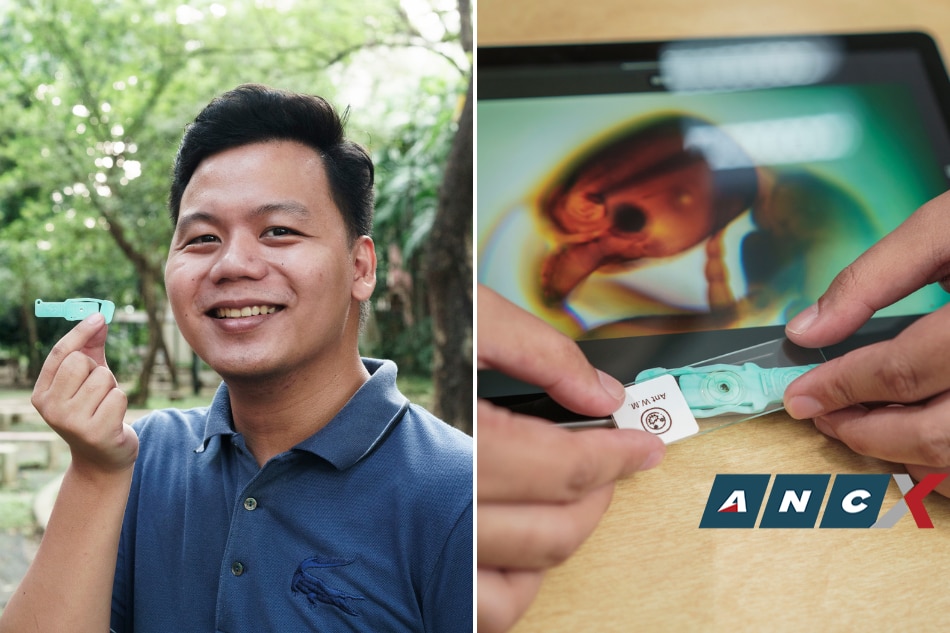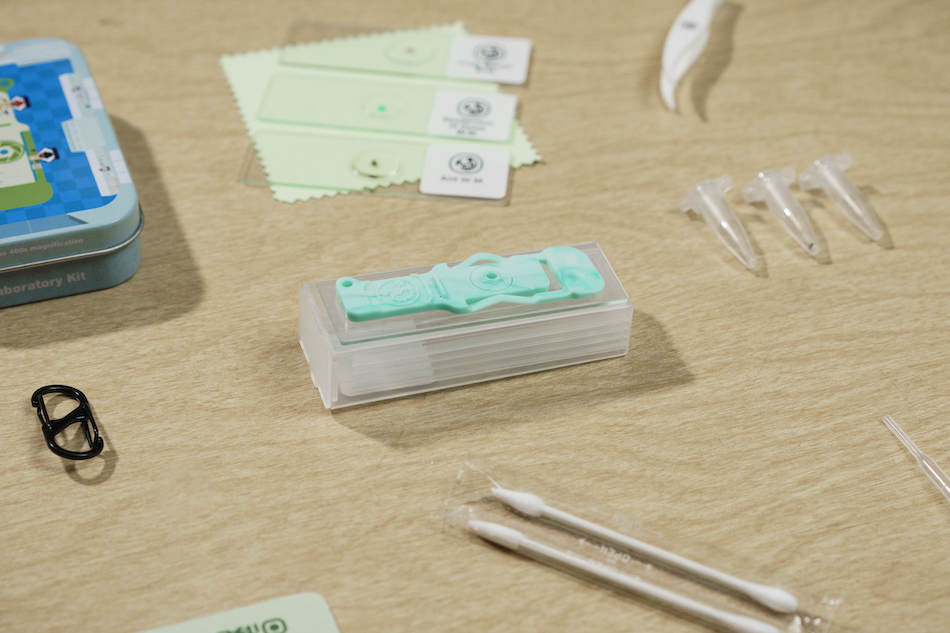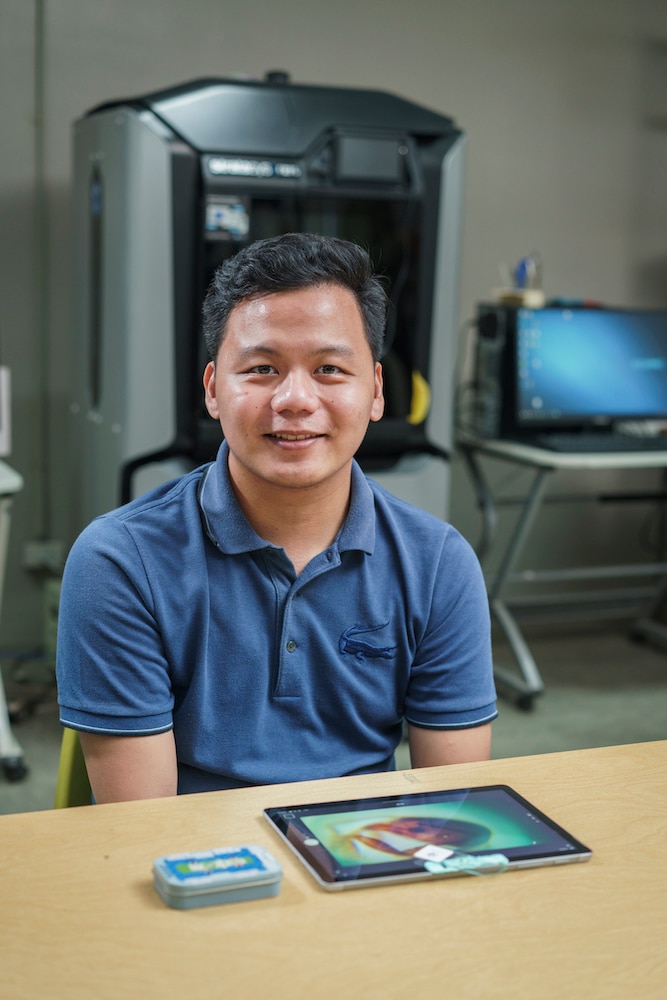When you think about it, it seems impossible: a microscope so small and lightweight you can carry it like a keychain. But enter the Make-roscope, an invention of Jeremy De Leon, a 28-year-old Manufacturing Engineering graduate of Mapua University.
Used with a smartphone or tablet—simply place the Make-roscope on top of the gadget’s front camera—the invention can magnify organisms up to 400 times. And because it is made of food-grade silicone and a special type of lens, it is also handy, waterproof, and will be good to use for a very long time. While the principles behind pocket microscopes already exist, Jeremy’s new design innovation provides better ease of use.
Jeremy's Make-roscope kit, which includes an information card, tweezers, keychain, cleaning cloth, blank glass slides, prepared specimen, pipette, specimen tubes, and cotton swabs, won the biggest prize in the Philippine leg of the James Dyson Award out of 47 entries from 12 universities. Jeremy says he will use the P330,000 prize money to further develop his invention.
Jeremy's entry will also progress to the international stage of the competition. The top 20 inventions will be announced on October 18 and the big winners on November 15. The winners, chosen by Sir James Dyson, will be awarded up to P2,000,000, while the runners-up will receive P330,000 each.
Jeremy says the Make-roscope was born during the pandemic, out of an Innovator Challenge posed by the Department of Science and Technology (DOST) on its TikTok account, @pinoyscience. Competitors were to present an invention using materials that can be found at home. What he decided to create was a do-it-yourself microscope using lenses from a laser pointer, a hairclip, and his mobile phone.
Jeremy, a science enthusiast since he was a kid, had the students going thru online classes in mind when he came up with the idea. “How can students appreciate science if they don’t get to go to a laboratory?” He then showed his invention to his science high school teacher who told him the Make-roscope should still be useful even when face-to-face classes resume. After all, there’s a lack of laboratory equipment in many schools.
Jeremy thought it would be ideal if each student would have his or her own Make-roscope. This way, they could avoid the risk of getting Covid from sharing the laboratory apparatus and it would be easy for them to pursue their own research.
It’s hard to believe this Caviteño engineer used to be scared of touching a microscope as a young student—he was always afraid he might break it. He remembers one microscope that has clearly seen better days. “Hindi na ma-focus maigi kasi medyo loose na ang gear,” he says. To make things worse, there would be at least four other students waiting their turn to use the apparatus. “Pag magma-microscope ka, mabilis na silip lang talaga. Hindi ka makakapag-explore o makakapag check ng iba’t ibang slides.”
The news about the ongoing crisis in the country’s STEM education also provided motivation for Jeremy to continue his research about his mini-microscope project.
Before the Dyson recognition, the Make-roscope won the grand prize in DOST’s TikTok challenge. Jeremy used the seed money (P25,000) he got from the tilt to create a prototype for his Make-roscope. He posted a video of his invention on TikTok (@jeremake) and to his surprise, people started inquiring where they could buy it and for how much. “There’s so much negativity during the pandemic so I wanted to give back and spread positivity. Naisip kong mamigay ng mga 1,000 pieces ng Make-roscope,” shares the young inventor.
He got a lot of advice online telling him to seek bigger funding from government and non-government agencies—which was how he thought of applying for a grant at DOST-Technology Application and Promotion Institute. From the agency, he got P120,000 which he used to produce 3,000 Make-roscopes. He gave away a thousand to teachers, students, and organizations all over the country. He made each kit available to interested buyers at https://www.jeremake.com and on Shopee for P549.
Working together with government organizations allowed Jeremy to reach out to students and teachers in far-flung areas. Soon, he realized he’s got a bigger mission. “Naalala ko yung yung isang teacher na taga Basilan na nag-request ng isang Make-roscope para gamitin ng kanilang buong school,” he says. By making the Make-roscope available and affordable to more students all over the country, Jeremy knows he could help make a more inclusive and effective STEM education a reality. This goal also inspired and motivated him to join the James Dyson Award.
Through the Dyson tilt, “We will expand our goal of reaching not just Filipino students, but every student in the world,” says Jeremy. “So they will be engaged in science, technology, engineering, and mathematics, and we will have more researchers, scientists, engineers, innovators, and especially change makers.”




